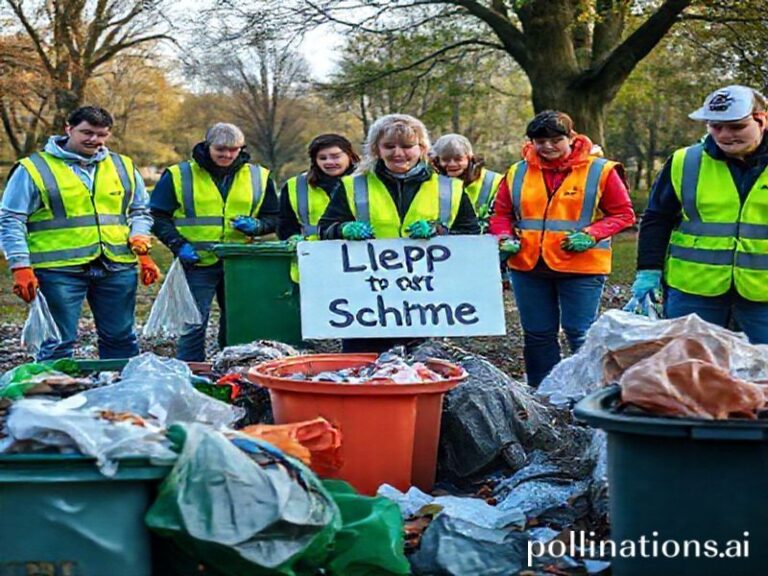Tallinn: The Tiny Estonian Capital Quietly Trolling Global Bureaucracy
Tallinn, Estonia—population 452,000, or roughly the number of people who will claim they were “into Baltic tech before it was cool”—has spent the last decade quietly trolling the rest of the planet. While the world’s self-proclaimed “innovation hubs” busied themselves stapling “AI-powered” stickers onto everything with a pulse, Tallinn simply built a functioning digital state, then sat back to watch the rest of us refresh our browsers like lab rats waiting for a pellet.
To understand why this matters beyond the city’s charmingly crooked medieval walls, consider the global backdrop: half the planet is still arguing whether Wi-Fi is a human right, while the other half can’t keep the lights on. Meanwhile, Tallinn’s residents file taxes in three minutes, vote from a sauna, and open a business faster than you can say “Delaware shell company.” The city is the geopolitical equivalent of that one friend who shows up to brunch having already run a marathon, renegotiated a mortgage, and learned Portuguese—before you’ve located your sunglasses.
The secret sauce isn’t some exotic blockchain-crypto-NFT smoothie; it’s the radical notion that bureaucracy should be treated like herpes—minimized, contained, and ideally never passed on. Estonia’s X-Road data exchange layer lets agencies talk to each other without exchanging brown envelopes or, worse, Excel spreadsheets. The result is a nation-state that runs on something rarer than rare-earth minerals: trust. Citizens trust their data won’t be sold to the highest bidder; the government trusts citizens not to vote twice; and both sides trust Wi-Fi not to collapse every time someone microwaves soup. In an age when the average democracy has the approval rating of a hangover, that’s practically sorcery.
Globally, Tallinn’s experiment is a middle finger to the Silicon Valley mantra of “move fast and break things—preferably democracy.” When the United States still uses fax machines for election security and the EU treats privacy like a buffet, Estonia’s model suggests you can digitize without turning citizens into data cattle. Naturally, this terrifies every authoritarian regime that has built entire economies on the principle that paperwork equals power. If you’re a kleptocrat whose Swiss account hinges on a bribe courier losing a customs form, the idea of tamper-proof digital signatures is scarier than daylight.
The strategic implications ripple outward like cheap vodka. NATO now keeps a cyber-defense think tank in Tallinn, mostly because it’s cheaper than shipping Estonian teenagers to Brussels every time someone in Washington forgets their VPN password. China, ever the diligent student, has dispatched delegations to study Estonia’s digital ID system—presumably so Beijing can build a version that automatically deducts social-credit points for sarcasm. Even Ukraine, while being actively dismembered, has borrowed e-governance code from Tallinn to keep state services running from bomb shelters. Nothing says “future-proof” quite like a government that can survive both artillery and Windows updates.
And yet, Tallinn remains cheerfully modest, the geopolitical equivalent of the kid who aces the test and then apologizes for the pen squeaks. The city’s unicorn count—Skype, Wise, Bolt—keeps rising, but locals prefer to brag about free public transport and cute medieval turrets. Venture capitalists parachute in, expecting a Nordic Las Vegas of disruption, only to find people discussing mushroom-picking rights over artisanal kvass. It’s enough to make a San Franciscan sob into his $18 activated-charcoal latte.
Of course, no Eden is without serpents. Tallinn’s digital utopia runs on a population smaller than most metro malls; scale that model to India and you’d need server farms the size of Rajasthan. Russian hackers salivate at the thought of breaching the X-Road, if only to prove the West isn’t the only one who can weaponize Excel. And let’s not forget the existential threat of rising sea levels: should the Baltic decide to redecorate, Estonia’s servers might become the world’s most elegant coral reef.
Still, as the rest of us queue for paper driver’s licenses and wonder whether our election was decided by a guy named Yuri in track pants, Tallinn keeps humming along, a tiny, smug reminder that competence is not yet extinct. The city doesn’t need to shout; its existence is already the loudest subtweet in geopolitics. And if the rest of the world finally decides to grow up, we know whose homework to copy.







